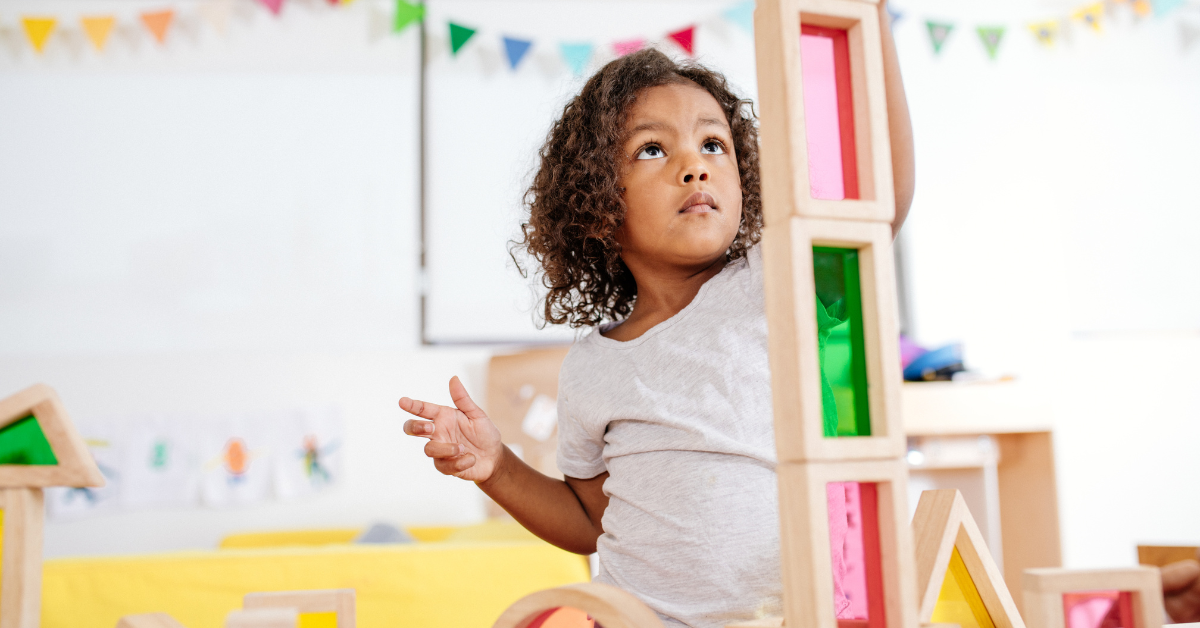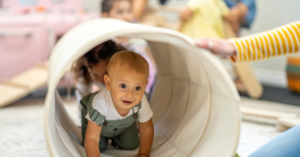
When it comes to your child’s early education and care, you might wonder, is preschool the same as daycare? This is a common question among parents, especially when deciding between child care options like daycare programs and preschools. While both options serve young children, they have distinct qualities that might make one a better fit for your family. In this guide, we’ll break down the biggest differences between daycare and preschool so you can make an informed choice that best supports your child.
What is Daycare?
Daycare centers provide care and supervision to children, often from infancy through until they are ready to go to school. These centers provide a safe environment where children can play, learn basic social skills, and receive age-appropriate activities while their parents work or attend to other responsibilities.
What is Preschool?
Preschool, also known as nursery school, is an early childhood education program for children aged three to five. Its focus is on preparing children for kindergarten and elementary school. Compared to daycare, preschool emphasizes more structured learning, social development, and cognitive skills.
Daycare vs. Preschool: Key Differences
Settings and Locations
- Daycare: You’ll often find daycare centers as stand-alone facilities, in community centers, or as small home-based daycares. They are designed with safe play areas and rooms for napping.
- Preschool: Preschools are either stand-alone facilities or affiliated with an elementary school, community center, or church. The environment is often more structured and designed to support educational activities.
Typical Age Range of Children
- Daycare: Daycare programs typically accommodate a wider age range, from infants as young as six weeks old to five years old.
- Preschool: Preschool programs generally cater to children aged three to five years, focusing on the period just before they enter kindergarten.
Hours and Calendar Schedules
- Daycare: Most daycares offer flexible hours to accommodate working parents, with full-day options available year-round. Many are open early in the morning until late in the evening.
- Preschool: On the other hand, preschools often follow a more traditional academic calendar, similar to elementary schools. They usually operate during school hours only with options for half-days or half-weeks for children adjusting to attending school. Some preschools offer before and after school care to accommodate parents who work full-time.
Day-to-Day Structures
- Daycare: The daily structure in daycare is usually more relaxed, focusing on providing a nurturing environment where children can engage in play, social interaction, and rest at the appropriate times.
- Preschool: Preschools have a more organized daily routine, with planned lessons and activities to develop specific skills in preparation for kindergarten. The emphasis is typically on pre-academic skills and social development.
Daily Activities
- Daycare: Activities in daycare settings tend to be more play-oriented, including free play, nap times, snack breaks, and basic learning activities.
- Preschool: Preschool activities encourage cognitive development, social skills, language acquisition, and motor skills. These might include arts and crafts, reading sessions, and interactive games.
Curriculum and Learning Outcomes
- Daycare: While some daycares offer educational content, their primary focus is child care service rather than formal learning. Learning is more incidental and child-led, designed to support overall and emotional development.
- Preschool: On the other hand, preschools use a formal curriculum to prepare children for school. They focus on early literacy, numeracy, problem-solving, and social-emotional skills, setting a solid foundation for future academic success and school readiness.
Potty Training Expectations
- Daycare: Daycares typically welcome children who are not yet potty trained and actively help with the training process as part of their care. Families may be expected to provide their own supply of diapers.
- Preschool: Preschools generally require children to be potty trained before enrollment, as they focus on fostering more independence in daily routines.
Pricing and Federal Funding
- Daycare: Daycare costs can vary widely, but many facilities offer sliding scale fees or subsidies based on family income. Federal and state funding may be available to help reduce the cost. Some daycares also offer sibling discounts or military discounts.
- Preschool: While some preschools are private and tuition-based, many offer public or nonprofit options that receive government funding, making them more affordable for families. You can also ask about scholarships are available.
The ChildCare.gov website is a helpful resource to find child care financial assistance options in your state, including vouchers, certificates, subsidies, Head Start and Early Start programs, state-funded prekindergarten, and military child care financial assistance programs.
Staff Qualifications
- Daycare: Daycare staff typically have certifications in childcare and basic first aid. Some may have early childhood education training, but it is not always required.
- Preschool: Preschool teachers often earn degrees or receive specialized training in early childhood education, which ensures they are well-prepared to deliver a structured learning experience.
Related: Au Pair vs. Nanny vs. Daycare: Making the Right Choice
Choosing the Right Option for Your Child
Deciding between daycare and preschool depends on your family’s needs and the child’s development stage. If you’re looking for a flexible child care program that provides a safe and caring environment, daycare might be the right fit. However, if your focus is on preparing your child for academic success and social development, a preschool setting could be more suitable.
Consider your child’s age, personality, and readiness for a structured environment. Also, think about your own schedule, the hours that work best for your family, and what you want your child to gain from the experience.
Ready to explore your child care options? Let UrbanSitter connect you with trusted local sitters and daycare providers that fit your family’s needs!



